COVID-19: TCTMD’s Dispatch for October Week 3
We’re curating a list of COVID-19 research and other useful content, and updating it regularly.
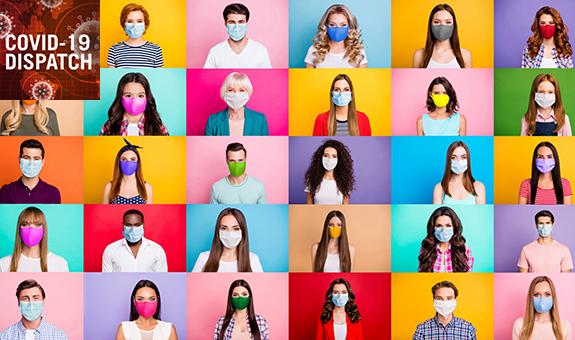
Since March 2020, TCTMD reporter Todd Neale has been writing up breaking news and peer-reviewed research related to COVID-19 every weekday. In July 2021, we transitioned to Mondays, Wednesdays, and Fridays. If you have something to share, tell us. All of our COVID-19 coverage can be found on our COVID-19 Hub.
October 22, 2021
On Wednesday, the US Food and Drug Administration (FDA) authorized use of booster doses after the Moderna and Janssen (Johnson & Johnson) COVID-19 vaccines, and stated that a “mix-and-match” approach to boosters among any of the available shots—which would include the one from Pfizer/BioNTech, already authorized for such use—is allowed. The US Centers for Disease Control and Prevention (CDC) followed the next day with recommendations consistent with those authorizations. Anthony Fauci, MD, director of the US National Institute of Allergy and Infectious Disease (NIAID) and chief medical advisor to President Joe Biden, said even though a “mix-and-match” approach is allowed, “it’s generally recommended” to stick with the same vaccine received for the primary series when getting a booster (Reuters).
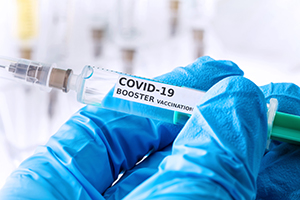 Pfizer and BioNTech announced Thursday that a phase III trial of a booster dose of their COVID-19 vaccine showed a relative vaccine efficacy of 95.6% compared with people who did not receive the third dose after completing the initial two-dose series. “These are the first efficacy results from any randomized, controlled COVID-19 vaccine booster trial,” the companies said. Reuters has more.
Pfizer and BioNTech announced Thursday that a phase III trial of a booster dose of their COVID-19 vaccine showed a relative vaccine efficacy of 95.6% compared with people who did not receive the third dose after completing the initial two-dose series. “These are the first efficacy results from any randomized, controlled COVID-19 vaccine booster trial,” the companies said. Reuters has more.
COVID-19 deaths in Russia reached a daily record for the fourth straight day on Friday, still a week away from a planned nationwide workplace shutdown, Reuters reports. “Authorities said 1,064 people had died in the previous 24 hours, with new infections hitting a second successive daily record at 37,141.”
The Pfizer/BioNTech vaccine appears safe and is nearly 91% effective at preventing symptomatic SARS-CoV-2 infections in children ages 5 to 11, according to study results released Friday. The Associated Press reports that the FDA “was expected to post its independent review of the company’s safety and effectiveness data later in the day.” An advisory committee will discuss the evidence in this age group at a meeting on Tuesday.
Two real-world studies published in the New England Journal of Medicine support high efficacy of COVID-19 vaccination against the Delta variant, CIDRAP News reports. In Scotland, vaccine effectiveness against death was 88% with the Oxford/AstraZeneca vaccine and 95% with the Pfizer/BioNTech vaccine among people ages 40 to 59; those figures were 90% and 87%, respectively, in people 60 and older. And among Israeli adolescents, vaccine effectiveness after the second dose was 90% against documented infection and 93% against symptomatic COVID-19. A third study showed that the Moderna vaccine was protective against symptomatic infection during a Delta-driven outbreak in a California prison.
 The World Health Organization (WHO) and partners have issued a call for better protections for healthcare workers during the pandemic. “The organizations are concerned that large numbers of health and care workers have died from COVID-19, but also that an increasing proportion of the workforce are suffering from burnout, stress, anxiety, and fatigue.” STAT and CIDRAP News provide details from a WHO media briefing discussing these issues and more.
The World Health Organization (WHO) and partners have issued a call for better protections for healthcare workers during the pandemic. “The organizations are concerned that large numbers of health and care workers have died from COVID-19, but also that an increasing proportion of the workforce are suffering from burnout, stress, anxiety, and fatigue.” STAT and CIDRAP News provide details from a WHO media briefing discussing these issues and more.
Singapore offers a warning about the risks of reopening in countries that acted aggressively through vaccination and other measures to push COVID-19 numbers as low as possible, according to a Reuters analysis. “Despite mask mandates, strict social curbs, and COVID-19 booster doses available for over a month, infections in the Asian city-state’s latest outbreak, driven by the Delta variant, took the death toll to 280, up from 55 early in September.”
There does not seem to be a benefit to doubling the dose of IV dexamethasone in patients hospitalized with COVID-19 and severe hypoxemia, according to results of the COVID STEROID 2 randomized trial published in JAMA. Administering a daily dose of 12 mg instead of 6 mg did not increase the number of days alive without life support at 28 days (median 22.0 vs 20.5 days; P = 0.07), although the authors say the trial may have been underpowered to find a difference. An accompanying editorial discusses the implications: “The results raise the strong possibility that treatment outcomes for COVID-19 may be improved further by the use of higher doses of glucocorticoids; however, additional trials are needed to confirm this and determine what dose is optimal.”
 Two studies in JAMA Network Open document racial/ethnic disparities in COVID-19 vaccination and outcomes. One shows that individuals identified as non-Hispanic American Indian/Alaska Native, Hispanic or Latino, non-Hispanic Black, and non-Hispanic Asian/Pacific Islander were more likely to have a COVID-19-related hospitalization, ICU admission, or in-hospital death compared with their non-Hispanic white counterparts. And the other shows lower vaccine uptake among Black and Hispanic individuals than among whites. The authors say this highlights “the urgent need to invest in policies and interventions to promote vaccine equity.”
Two studies in JAMA Network Open document racial/ethnic disparities in COVID-19 vaccination and outcomes. One shows that individuals identified as non-Hispanic American Indian/Alaska Native, Hispanic or Latino, non-Hispanic Black, and non-Hispanic Asian/Pacific Islander were more likely to have a COVID-19-related hospitalization, ICU admission, or in-hospital death compared with their non-Hispanic white counterparts. And the other shows lower vaccine uptake among Black and Hispanic individuals than among whites. The authors say this highlights “the urgent need to invest in policies and interventions to promote vaccine equity.”
October 20, 2021
According to the latest situation report from the World Health Organization (WHO), Europe is the only region that saw a rise in COVID-19 cases last week. Globally, weekly cases and deaths declined by 4% and 2%, respectively, compared with the week before, although Europe experienced a 7% increase in cases and a 4% uptick in deaths. Africa had the biggest declines in new cases (by 18%) and deaths (by 24%).
 Some Reuters news from around the world: Romania’s funeral homes are struggling to keep up amid a surge in cases; Poland reported more than 5,000 daily new infections for the first time since May; Russian President Vladimir Putin has approved a weeklong workplace shutdown starting October 30 to stem rising numbers of cases and deaths; UK hospitals are straining as Britain deals with an ongoing COVID-19 wave, with health leaders urging a return of some restrictions; and in Africa, Kenya lifted a curfew due to easing infection numbers and Senegal recorded zero new cases for the first time since the pandemic began.
Some Reuters news from around the world: Romania’s funeral homes are struggling to keep up amid a surge in cases; Poland reported more than 5,000 daily new infections for the first time since May; Russian President Vladimir Putin has approved a weeklong workplace shutdown starting October 30 to stem rising numbers of cases and deaths; UK hospitals are straining as Britain deals with an ongoing COVID-19 wave, with health leaders urging a return of some restrictions; and in Africa, Kenya lifted a curfew due to easing infection numbers and Senegal recorded zero new cases for the first time since the pandemic began.
The US Food and Drug Administration (FDA) is delaying a decision on whether to authorize Moderna’s vaccine for use in adolescents as it further evaluates a possible link to myocarditis, the Wall Street Journal reports. That news comes after four countries—Denmark, Finland, Norway, and Sweden—recently recommended against using the vaccine in people younger than 30 due to myocarditis concerns.
The effectiveness of two doses of the Pfizer/BioNTech vaccine against COVID-19 hospitalization is 93% in adolescents ages 12 to 18 in the United States, according to case-control study in Morbidity and Mortality Weekly Report. Of the patients hospitalized during the study period, 97% were unvaccinated. “These data suggest that increasing vaccination coverage among this group could reduce the incidence of severe COVID-19 in the United States,” the authors say.
 The FDA is expected to allow “mix-and-match” COVID-19 booster shots, the New York Times reports: “The government would not recommend one shot over another, and it might note that using the same vaccine as a booster when possible is preferable, people familiar with the agency’s planning said. But vaccine providers could use their discretion to offer a different brand, a freedom that state health officials have been requesting for weeks.”
The FDA is expected to allow “mix-and-match” COVID-19 booster shots, the New York Times reports: “The government would not recommend one shot over another, and it might note that using the same vaccine as a booster when possible is preferable, people familiar with the agency’s planning said. But vaccine providers could use their discretion to offer a different brand, a freedom that state health officials have been requesting for weeks.”
An investigational oral direct-acting antiviral—called AT-527—did not reduce SARS-CoV-2 viral load in outpatients with mild-to-moderate COVID-19 in a phase II trial, drugmaker Atea Pharmaceuticals announced Tuesday. There were signs of benefit in the subgroup of high-risk patients with underlying health conditions, prompting the company to consider changes to an ongoing phase III trial. STAT has more.
Trial results published in the Lancet Respiratory Medicine indicate that colchicine and a combination of interferon beta-1a and remdesivir do not have significant benefits in patients hospitalized with COVID-19. A commentary accompanying the latter trial notes, “The urgent need to develop better therapies for COVID-19 remains, and learnings from negative trials such as this are important. Questioning current treatment strategies and the standards of care included when trials are designed will be key not only to identify efficacious therapies but also to ultimately define an optimized treatment plan for a disease that might continue to be prevalent for years to come.”
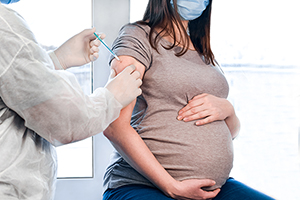 The sex of the fetus appears to influence the mother’s immune response to SARS-CoV-2 infection, STAT reports, pointing to new research in Science Translational Medicine indicating that women carrying male babies develop much lower levels of antibodies. Moreover, another study showed that pregnant and lactating women didn’t develop as many antibodies after the first dose of an mRNA vaccine as nonpregnant women; however, the differences mostly disappeared after the second shot. “These are exploratory analyses of functional antibodies that may or may not correlate with protection,” one expert cautioned, adding that “as we learn more about the science and explore these differences, it’s very important that we keep focused on the fact that vaccination is protective.”
The sex of the fetus appears to influence the mother’s immune response to SARS-CoV-2 infection, STAT reports, pointing to new research in Science Translational Medicine indicating that women carrying male babies develop much lower levels of antibodies. Moreover, another study showed that pregnant and lactating women didn’t develop as many antibodies after the first dose of an mRNA vaccine as nonpregnant women; however, the differences mostly disappeared after the second shot. “These are exploratory analyses of functional antibodies that may or may not correlate with protection,” one expert cautioned, adding that “as we learn more about the science and explore these differences, it’s very important that we keep focused on the fact that vaccination is protective.”
The Associated Press delves into why booster doses of the vaccine from Pfizer/BioNTech weren’t tweaked to match the Delta variant: “The simple answer: The FDA last month OK’d extra doses of Pfizer’s original recipe after studies showed it still works well enough against Delta—and those doses could be rolled out right away.” But, the story notes, both Pfizer/BioNTech and Moderna are testing experimental doses modified to protect against Delta and another variant to learn how to change the formula if needed.
Obesity not only is associated with more-severe outcomes among patients hospitalized with COVID-19, but also is related to more symptoms in outpatients, according to research in Influenza and Other Respiratory Viruses. Overweight or obesity was associated with more cough and shortness of breath and, in adolescents, with longer respiratory symptoms. “These findings underscore the importance of vaccinating individuals with overweight or obesity,” the authors say.
October 18, 2021
Colin Powell, former US Secretary of State and chairman of the Joint Chiefs of Staff, died of complications related to COVID-19 on Monday; he was 84 (Reuters). His family said in a statement that Powell was fully vaccinated. “It did not address such matters as what vaccine he received or whether he had gotten a booster shot, when he fell ill, when he may have been hospitalized and whether he may have had underlying health conditions that contributed to his illness.” The New York Times notes that Powell had a compromised immune system related to prior treatment for multiple myeloma.
 After a mid-August peak, daily COVID-19 cases have declined dramatically in Japan, with numbers frequently below 100 in the capital of Tokyo, the Associated Press reports. The reason for the sudden turn of events isn’t clear. “Some possible factors in Japan’s success include a belated but remarkably rapid vaccination campaign, an emptying out of many nightlife areas as fears spread during the recent surge in cases, a widespread practice, well before the pandemic, of wearing masks, and bad weather in late August that kept people home.”
After a mid-August peak, daily COVID-19 cases have declined dramatically in Japan, with numbers frequently below 100 in the capital of Tokyo, the Associated Press reports. The reason for the sudden turn of events isn’t clear. “Some possible factors in Japan’s success include a belated but remarkably rapid vaccination campaign, an emptying out of many nightlife areas as fears spread during the recent surge in cases, a widespread practice, well before the pandemic, of wearing masks, and bad weather in late August that kept people home.”
The European Medicines Agency (EMA) has begun evaluating whether use of the COVID-19 vaccine from Pfizer/BioNTech should be allowed in children ages 5 to 11, the agency announced Monday. The companies applied to the US Food and Drug Administration (FDA) for a similar extension into the younger age group earlier this month, and an advisory committee will consider the issue at a meeting next week.
International travelers to the United States will need to be fully vaccinated starting November 8, according to new rules. The US Centers for Disease Control and Prevention (CDC) said “vaccines accepted will include FDA-approved or -authorized and WHO Emergency Use Listing vaccines.” Of note, people who have completed “mix-and-match” vaccine series, a common practice in some parts of the world, will be considered fully vaccinated. The Washington Post gives more details.
The state of emergency in Germany related to COVID-19 is likely to end on November 25, although some restrictions tied to testing, vaccination, and hygiene will remain in place, according to the country’s health minister (Reuters). “This means the state of emergency that has been in place for almost 19 months since March 28, 2020, will end,” Jens Spahn said on Monday. “We are moving from a state of emergency to a state of special caution.”
 European vaccine manufacturer Valneva announced Monday that its inactivated, adjuvanted COVID-19 vaccine candidate was superior to the Oxford/AstraZeneca shot in terms of antibody response and noninferior in terms of seroconversion rates in a phase III trial in adults, meeting both primary endpoints. The frequency of any COVID-19 cases was an exploratory endpoint, showing no difference between vaccines. There were no severe cases in the phase 3 Cov-Compare trial, which “may suggest that both vaccines used in the study prevented severe COVID-19 caused by the circulating variant(s) (predominantly Delta),” the company said. The vaccine, currently known as VLA2001 is currently the only “whole virus,” inactivated, adjuvanted COVID-19 vaccine candidate being tested in European clinical trials.
European vaccine manufacturer Valneva announced Monday that its inactivated, adjuvanted COVID-19 vaccine candidate was superior to the Oxford/AstraZeneca shot in terms of antibody response and noninferior in terms of seroconversion rates in a phase III trial in adults, meeting both primary endpoints. The frequency of any COVID-19 cases was an exploratory endpoint, showing no difference between vaccines. There were no severe cases in the phase 3 Cov-Compare trial, which “may suggest that both vaccines used in the study prevented severe COVID-19 caused by the circulating variant(s) (predominantly Delta),” the company said. The vaccine, currently known as VLA2001 is currently the only “whole virus,” inactivated, adjuvanted COVID-19 vaccine candidate being tested in European clinical trials.
The first half of the pandemic was associated with increased risks of gestational diabetes, gestational hypertension, poor fetal growth, and preeclampsia, but not stillbirth, among pregnant women with commercial health insurance in the United States, according to a study in JAMA Network Open. There was a slightly lower risk of spontaneous preterm labor. “To our knowledge, this is the largest and most comprehensive study to date of the impact of the COVID-19 pandemic on adverse pregnancy outcomes,” the authors note.
IV immune globulin (IVIG) has been used to treat the multisystem inflammatory syndrome in children (MIS-C) related to SARS-CoV-2 infection, and it appears that it works by depleting neutrophils, much like it does in Kawasaki disease, according to a study published recently in the Journal of Clinical Investigation. The US National Institutes of Health (NIH), which funded the study, provides more details in a press release issued late last week.
Among patients with inflammatory arthritis, inflammatory bowel disease, or psoriasis, being on tumor necrosis factor (TNF) inhibitor monotherapy was associated with a lower risk of COVID-19-associated hospitalization or death compared with other common immunomodulatory treatment regimens, researchers report in JAMA Network Open. “These findings support the continued use of TNF inhibitor monotherapy during the pandemic and warrant further research investigating the association of other biologic therapies with COVID-19 outcomes,” they say.
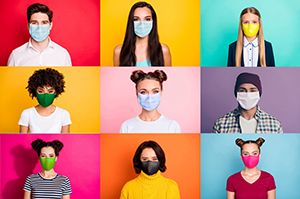 The second part of a CIDRAP News commentary on masking during the COVID-19 pandemic discusses what goes into a quality mask study and explores “some recent studies that, though highly touted by both scientists and the lay press, fell quite a bit short of the ideal.” The first part of the commentary, published a day earlier and previously mentioned in the Dispatch, provides an overview of mask types, the science of respiratory protection, and the hierarchy of disease controls.
The second part of a CIDRAP News commentary on masking during the COVID-19 pandemic discusses what goes into a quality mask study and explores “some recent studies that, though highly touted by both scientists and the lay press, fell quite a bit short of the ideal.” The first part of the commentary, published a day earlier and previously mentioned in the Dispatch, provides an overview of mask types, the science of respiratory protection, and the hierarchy of disease controls.
Todd Neale is the Associate News Editor for TCTMD and a Senior Medical Journalist. He got his start in journalism at …
Read Full Bio


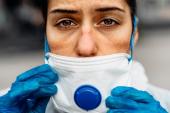

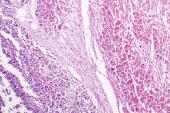
Comments